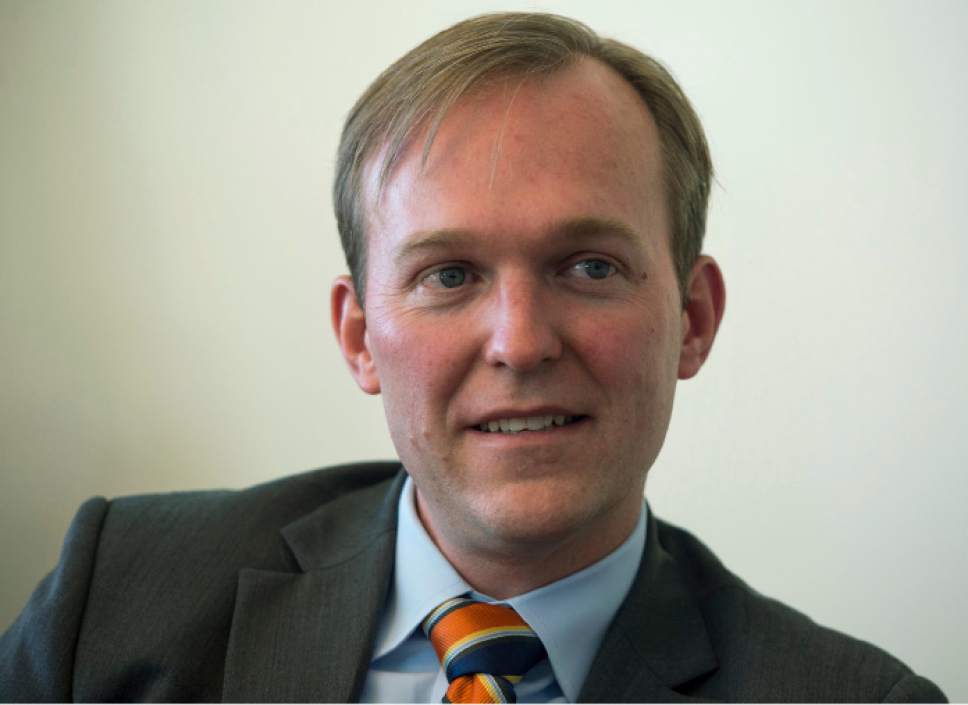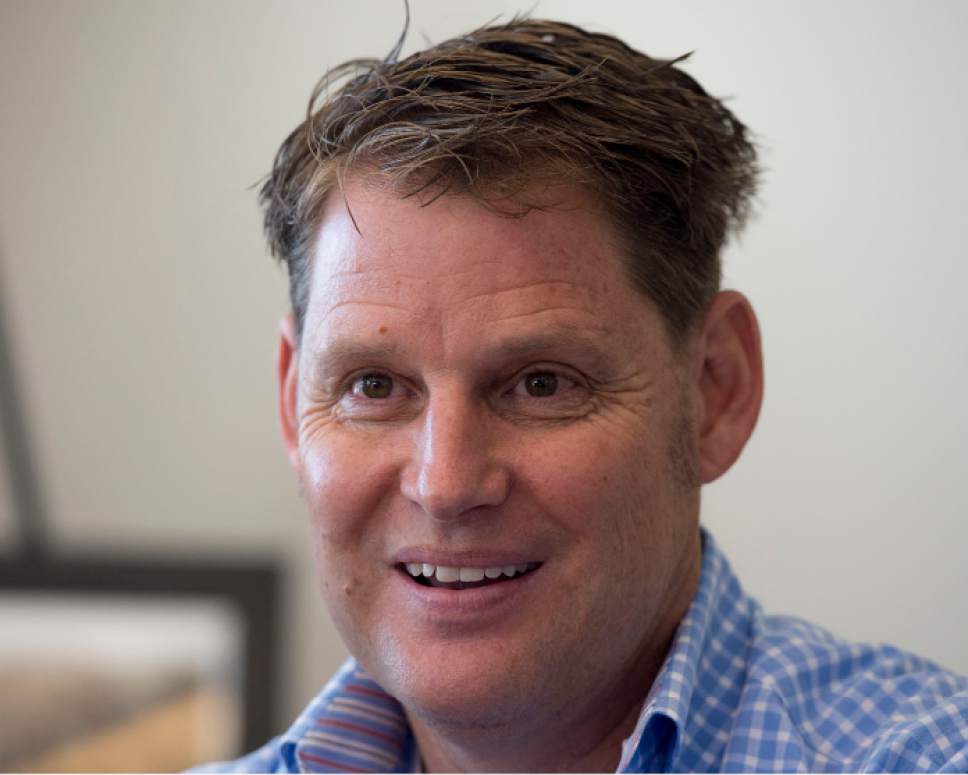This is an archived article that was published on sltrib.com in 2016, and information in the article may be outdated. It is provided only for personal research purposes and may not be reprinted.
Republican challenger Dave Robinson has accused the Mountain Accord planning process of being a vehicle for some backers of his Democratic rival, Mayor Ben McAdams, to secure consulting contracts involving the future of the central Wasatch Mountains.
McAdams rejected the allegation, saying Robinson is lashing out at him and the multiyear process because the results weren't what Robinson and his associates wanted.
"My opponent," said McAdams, who heads the Mountain Accord's executive committee, "has a long history of making absurd allegations with no factual basis."
Robinson's business interests include consulting work for some private property owners in the Cottonwood canyons who feel the process was biased against their interests, with the real decisions made in secrecy.
He maintains that Mountain Accord documents acquired through open-records requests showed "a lot of money going to friendly lobbyists through no-bid contracts, some of whom are contributing to the McAdams re-election campaign."
As evidence, Robinson cited contracts awarded to The Exoro Group for public engagement and outreach, and to Hartman Management Group for governance issues.
Exoro has assisted McAdams on previous political campaigns, while Daniel Hartman is a contributor to the mayor's re-election push and also a principal in Exoro and Hartman Management.
"This is certainly not acceptable," Robinson said. "When you see these records, you can see why they wanted [Mountain Accord] to be exempt from the Utah Open Meetings Act."
Robinson's allies in the Cardiff Canyon Owners Association filed a 3rd District Court lawsuit last week, contending that Mountain Accord violated the act by not recording and keeping meeting minutes, not advertising meetings on a state open-meetings website and preventing the public from participating.
McAdams and Laynee Jones, the lead contractor running the Mountain Accord process, have a legal opinion from county District Attorney Sim Gill saying the informally organized group of public and private parties is not subject to the open meetings law.
Even so, they said, Mountain Accord generally complied with the spirit of the law.
Jones denied Robinson's assertion that contracts were awarded without bids, saying Exoro beat out several other competitors in a selection process that involved Sandy, the state, Park City, Salt Lake City and the Wasatch Front Regional Council.
Salt Lake County was not involved, she noted, adding "the selection team picked the best proposal."
Exoro President Maura Carabello bristled at being tarred by Robinson.
"It is unfortunate someone would come forward with a baseless smear campaign, and they see that as the best way to get elected," she said, calling the Mountain Accord project "the kind of public-policy work we love to do. We work really hard and have a good reputation we take seriously. It hurts when people make up stuff about us that isn't true."
Wasatch Front Regional Council Executive Director Andrew Gruber confirmed Jones' account, adding that the Exoro deal was a typical contract-award process.
"Nothing struck me as unusual," Gruber said.
Robinson was not satisfied with the explanations, encouraging Jones to produce the contracts and supporting documents. He also maintained that if the Cardiff Canyon landowners' suit fails, the Mountain Accord example will "gut" the open-meetings law.
McAdams said far greater damage is likely to come from negative campaigns that push personal agendas.
"I will remain a candidate who talks positively about my vision and my ideas for how I can serve Salt Lake County," he said.





